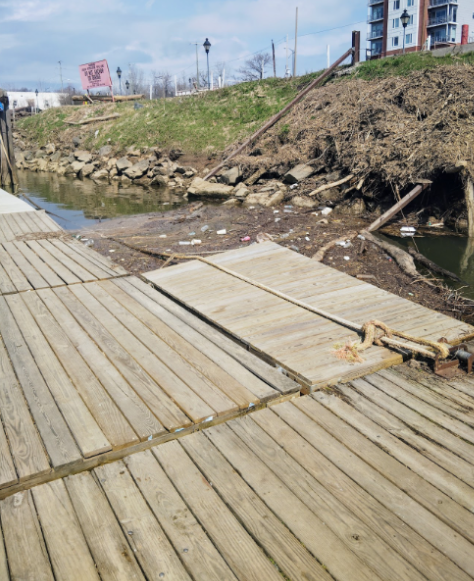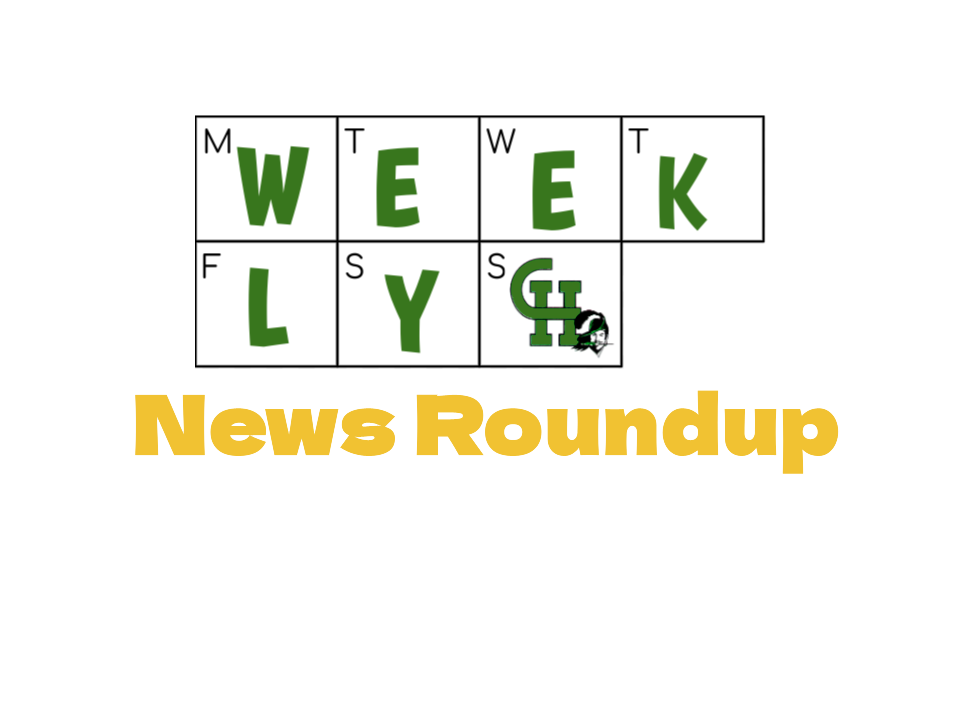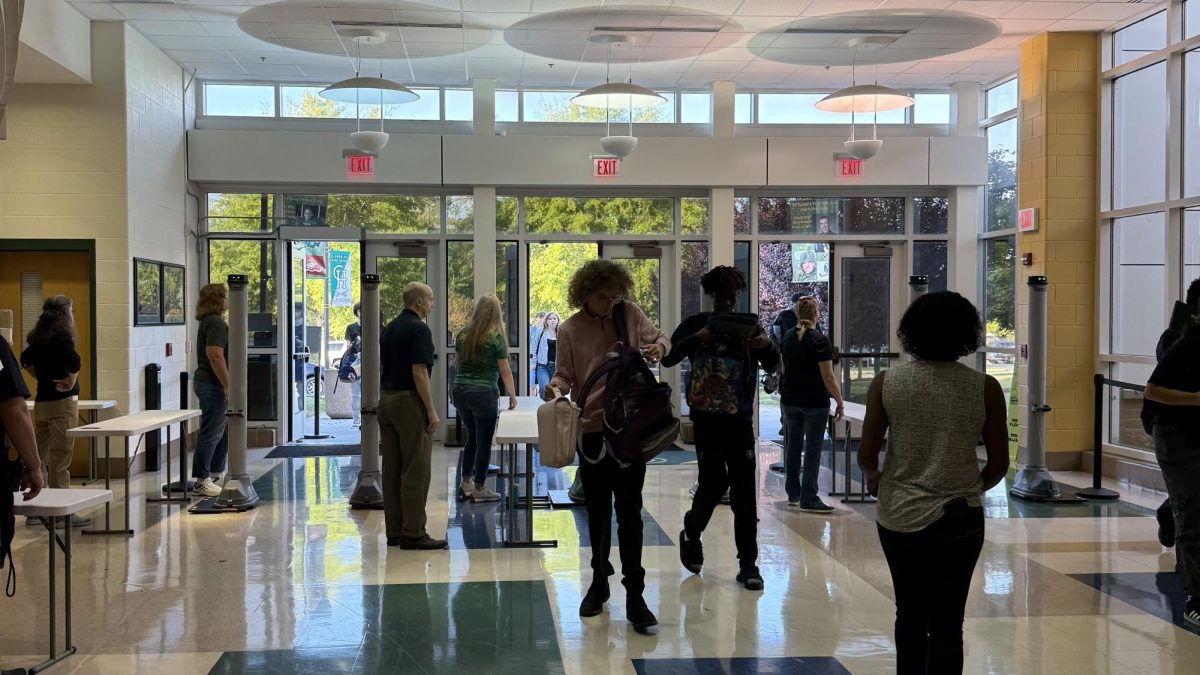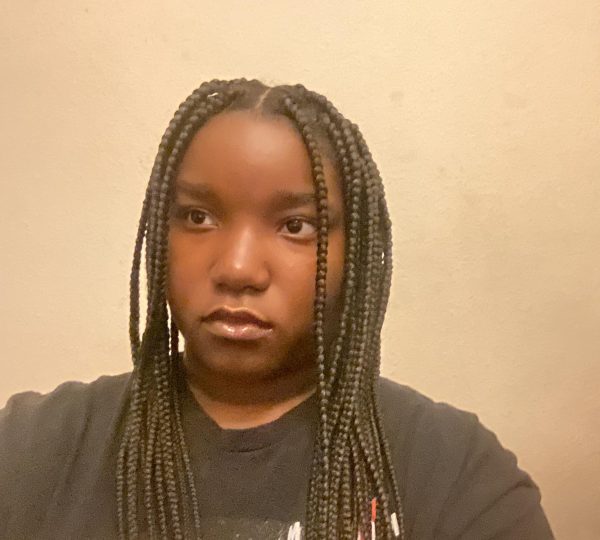The James River takes up 25% of the State of Virginia, and the water is provided for 39 counties and 19 cities. The river houses many endangered and threatened animals, and it was considered one of the most polluted waters in North America. How can we fix this problem?
Biology teacher Jessica Pollard believes that pollution affects the food chain of animals that live in the James River as official data can show records of the effect of pollution, but recent news of sturgeon coming back to Richmond waters.
“I don’t know if that was fishing or but it’s probably we have to look up official data, but the sturgeon made a comeback, the sturgeon are big giant fish that were in the river and when we first colonized here, we started to kill them off and now they’re coming back but that’s a good thing,” Pollard said.
Astronomy and environmental teacher Nicholas Braun restates that the pollution in the James River affects the food chain.
“In reality it all starts with a microscopic organism that you can’t even see, and it works up the food chain to eventually the big catfish,” Braun said.
Pollard thinks that advocating for clean water in the James River is important as she describes the butterfly effect of pollution.
“Water energy it’s really important because the James are really inflowing out to just be basically the ocean,” Pollard said. “We’re putting into the river is gonna affect things downstream into estuaries.”
Braun being an avid fisherman has strong beliefs about advocating for clean water as it preserves the Earth.
“It’s extremely important to advocate for clean water and help preserve [the] Earth and preserve and conserve the fishies in our river,” Braun said.
Pollard suggests that the extinction of endangered species inside the James River can affect the food chain of citizens and animals.
“That will, of course, affect our food sources, fish and food sources of other birds,” Pollard said.
Braun restates that removing keystone species in the James River ecosystem can offset the ecosystem.
“Ecosystems need to be balanced. And I think if you remove some of these keystones and major species,” Braun said. “We have a big problem and our [ecosystems] can be offset and off balance.”
Pollard suggests that enforcing the clean water act can be difficult to enforce but is still an act that is still in place but it is up to the community to enforce it.
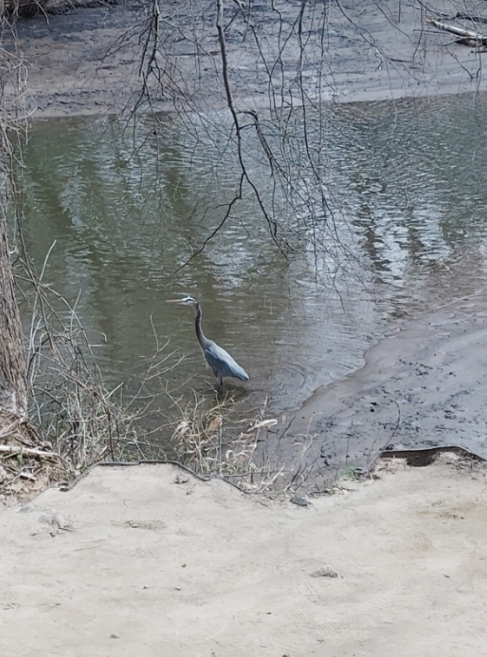
“I don’t think there’s people like patrolling but unless they get reported, I mean you can report people for littering, but when there’s ever been anything like people patrolling to enforce it, I mean it’s still a thing” Pollard said. “I think that’s still in place so it’s really like the community, the community keeps the law enforcement.”
Braun uses his knowledge from prior jobs to know the enforcement of the Clean Water.
“I was an environmental consultant and Virginia actually has some of the strictest laws and in terms of water discharge,” Braun said. “We have extremely strict laws compared to other states. So I’m pretty familiar with water quality permits.”
The James River provides a home for many endangered species in Virginia, and it is important to keep the water clean for the food chain and ecosystem of the river. To enforce the acts in place is the responsibility of the people.


